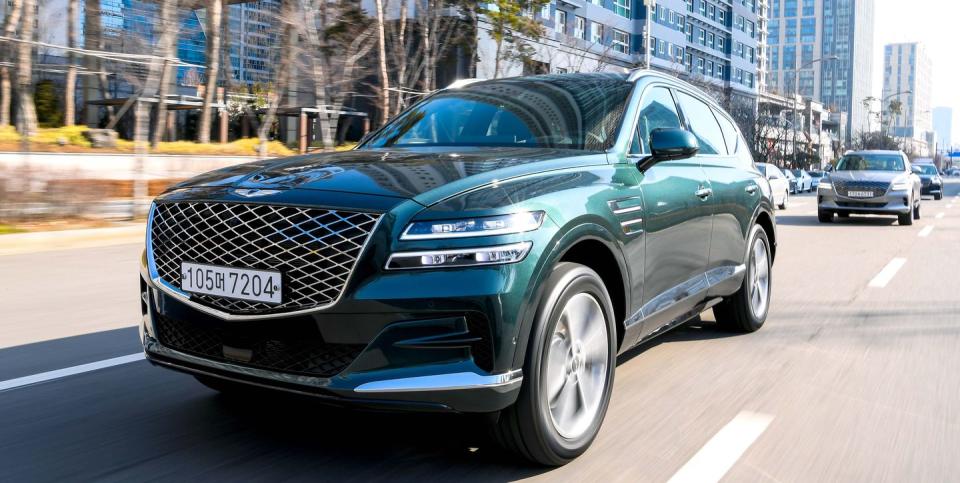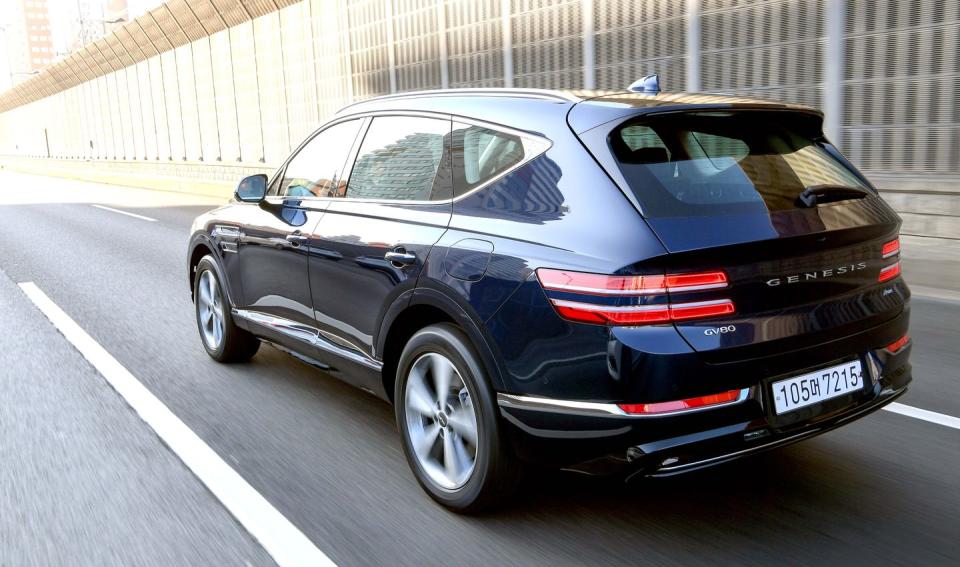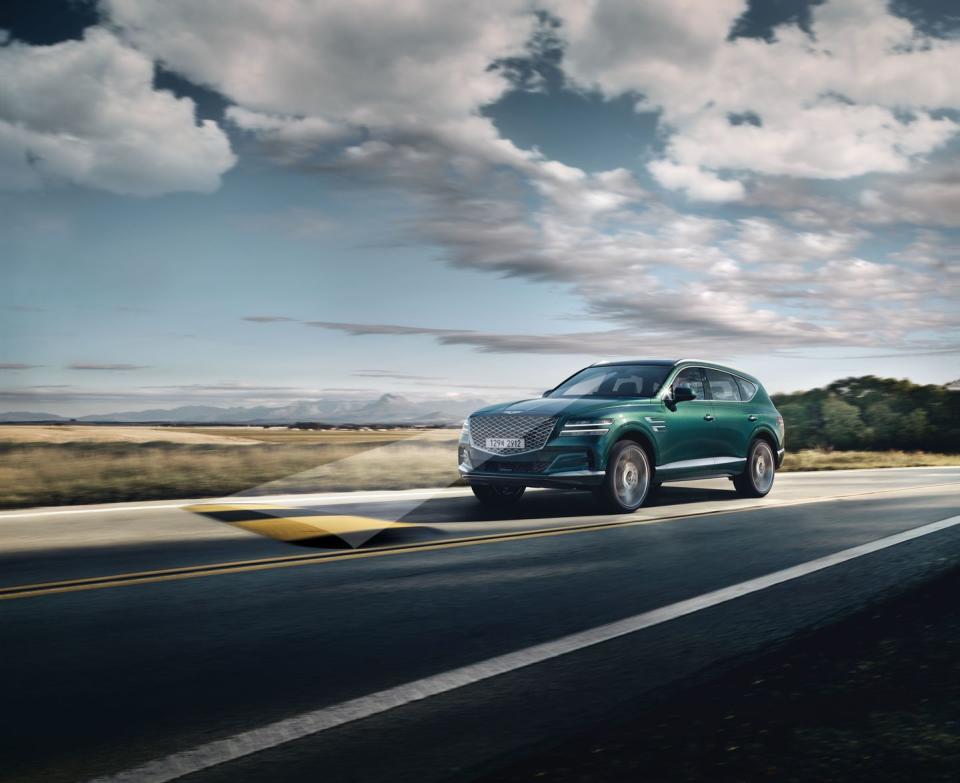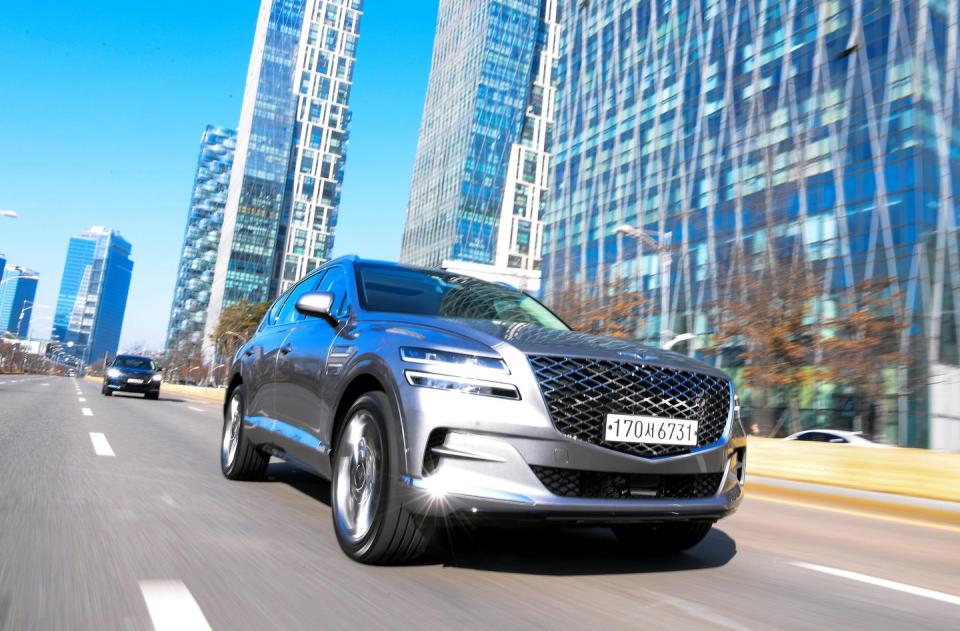The 2021 Genesis GV80 Will Change the Game

When Genesis arrived as a standalone brand in 2015, it didn't seem set up to make an impact. Here was a company that, despite being new to market, carried the name of a previous Hyundai model and offered two forgettably named sedans—the G80 and G90—that played in shrinking segments. Both were good, but neither felt distinct enough to truly threaten established players.
Then the G70 arrived. It took the value and quality the brand was defined by and added excitement, garnering accolades worldwide for being a segment-defining sports sedan. But in 2019, that too was a shrinking market where even BMW is bleeding. That car set the bar for the brand and the 2020 G90 defined the styling language, but everything until now feels like a prequel. With the GV80—the company's first SUV—Genesis feels ready to change the game.

That's the impression over two days in Seoul, South Korea, where the GV80 had its global unveil. In addition to driving a Korean-market GV80, we got to talk to the development team and learn a lot more information that didn't make it into the initial press release.
First, U.S.-market GV80s will be offered with two engines. The base engine is a 2.5-liter turbocharged four cylinder, an evolution of the 2.5t motor already available in other Hyundai Motor Group products. The second is more substantially new, a 3.5-liter turbocharged V-6 that shares some DNA with the 3.3-liter engine in other Genesis products. Power figures are still to come, but we'd expect the output of the 3.5 to best the 3.3's 365 hp rating.
And while some assume that the GV80 shares its bones with the stellar Kia Telluride and Hyundai Palisade, it's actually a rear-wheel-drive architecture that will underpin the next G80. Base models will be rear-wheel drive, but expect most GV80s to be all-wheel drive. Though it's not built for serious off-roading, the GV80 also offers a terrain response system that uses the all-wheel-drive system and an electronic limited-slip differential to negotiate slippery surfaces.

There's no air suspension or magnetic dampers, but the GV80 does offer adjustable dampers. They work with a forward-looking camera, which spots bumps in the road and automatically softens the suspension to soak them up. Korea, as we learned, is the land of many speed bumps.
Cameras also enable an augmented reality navigation feature, which projects driving directions onto a live view of the road. Genesis hasn't confirmed whether or not this is coming to the U.S., but we hope it does. The built-in dash cam likely won't make it stateside, though the Russian market is unsurprisingly excited for that feature.
Keeping on with cameras, the GV80 features one camera housing pointed directly at the driver. This handles two things. The first is a 3D effect for the gauge cluster, which uses eye tracking to properly calibrate the trick depth effect. That can be turned off, but we didn't find it annoying or distracting. The second function of the driver camera, though, is more useful.

It tracks your attention, chiding you when it detects distracted driving or over-reliance on the active safety systems. That's crucial, because Genesis' superb Highway Driving Assist 2.0 is one of the best semi-autonomous systems on sale. HDA 1.0 was already great, handling stop-and-go traffic without much driver intervention, but the new system is a big step forward.
First, it uses machine learning to see how close you typically follow cars, how late you brake, and how aggressively you accelerate. When you engage HDA, it tries to mirror your behavior. Second, it'll now do automatic lane changes if you hold down the turn signal and can spot cars cutting you off in traffic and react immediately.

 Yahoo Autos
Yahoo Autos 